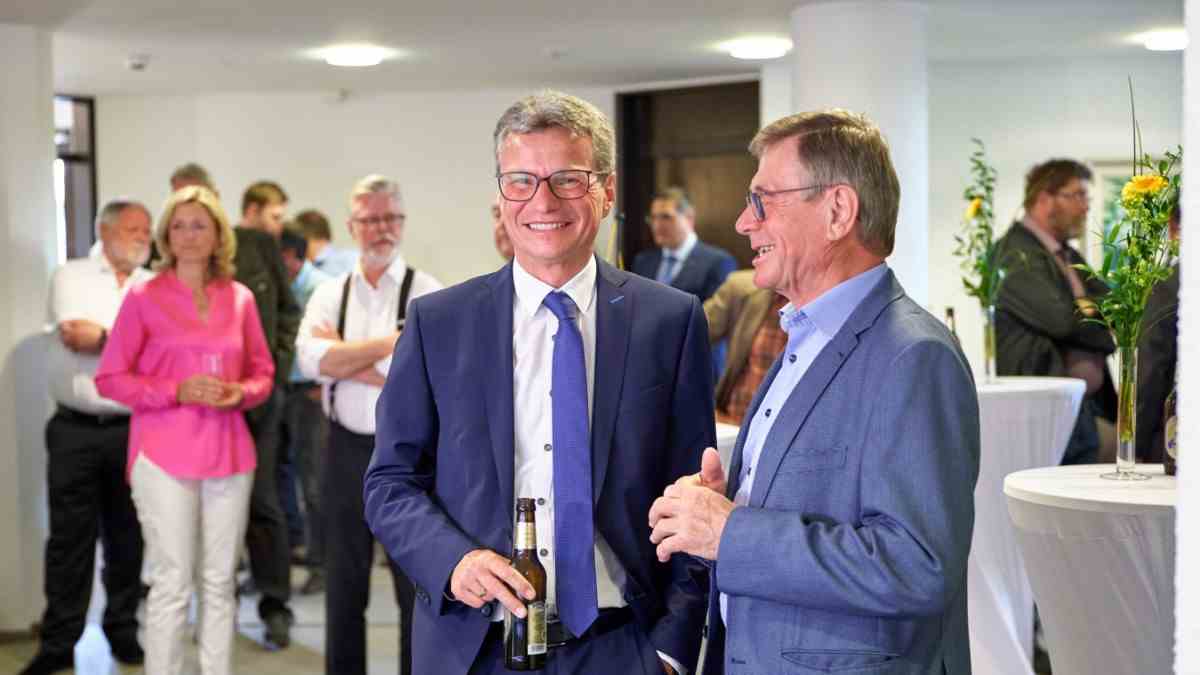“A great weekend,” says Markus Söder when he appears in front of the press after the meeting of the CSU board on Monday. By that he doesn’t just mean his excursions – the Passion Play in Oberammergau, the Upper Palatinate Day in Amberg – but also the elections. The state elections in North Rhine-Westphalia, which are often called small federal elections. A “note” for the traffic lights and SPD Chancellor Olaf Scholz, “partly also a vote of no confidence,” says Söder. And two district elections in Bavaria, especially in Deggendorf in Lower Bavaria, where ex-science minister Bernd Sibler (CSU) won with almost 53 percent in the first ballot.
Some would have described it as a small state election, Söder notes critically that it was “stylized”. Which doesn’t stop him from interpreting the result this way: a success for Sibler, but also “to a certain extent” for the entire CSU. “All the best signs” for the 2023 state elections.
Sibler, 51, won with 52.8 percent. He was followed by Stefan Achatz (free voters) with 26.1 percent. The AfD had a prominent candidate in Katrin Ebner-Steiner, a member of the state parliament, but she came last with 6.4 percent. Maren Lex (Greens) came to 8.1, Thomas Müller (SPD) to 6.6 percent. The connection to state politics in these local elections was already obvious because of how they came about.
The accusation of “post-cheating” apparently played no role
It had become necessary because the previous District Administrator Christian Bernreiter (CSU) moved to Munich as the new Minister of Construction in February. Sibler lost his post in the cabinet reshuffle. This castling had been discussed during the election campaign, for example by the free voters as a “post haggling”. As an argument against Sibler, this obviously did not play a particularly important role in the decision of the citizens.
Another lesson from the election is probably that the crises of the CSU – the anger about the general secretaries, the investigation committee mask affair – did little damage locally. Söder said on Monday, without going into detail, that there was no distraction from “things that resonate less with the population than in the parliamentary bubble”.
It can therefore be argued about the actual national political significance. If it hadn’t worked out for Sibler right away, the CSU state leadership would certainly have vehemently denied any signaling effect. What is certain, however, is that it is a worked-out victory for the future CSU district administrator.
Sibler has always achieved strong election results
One cannot say that Sibler was not close to the ground, even when he was in top office he showed a presence at home – his commuting with the regional train from Plattling to Munich is already known. Sibler also always achieved very strong first vote results in the state elections. Söder praised his “lifeblood” for the Deggendorf district, Sibler was also “exemplary in character” and after resigning from the cabinet “did not complain or withdraw”. It stays that way, says Söder, “Lower Bavaria is a home country for the CSU”. General Secretary Martin Huber called Sibler’s victory “sensational”.
FW candidate Achatz drove a decent result with 26 percent; For the 41-year-old mayor of a community on the outskirts of the district, the lack of awareness in the entire region must have been an obstacle to greater success. Ebner-Steiner fell well short of expectations.
The AfD is already worried about the state elections
Deggendorf has been a good place for the AfD in elections for years. In party circles it was heard on Monday: If even Ebner-Steiner doesn’t break anything in Deggendorf, that would be a fatal prospect for the state elections. The AfD is stuck in a low state in West Germany; Apparently there is little to be found even about well-known people, and Ebner-Steiner’s personal appeal may have been overestimated. Some in the AfD murmur after the election Sunday: Maybe in 2023 Bavaria will be “closer to five than ten percent”, like now in North Rhine-Westphalia.
The turnout in Deggendorf was only 40.8 percent. During the election campaign, interest was sometimes manageable. A large, digitally broadcast debate between the local press and the candidates peaked at 200 people live.
District elections were also held in Dillingen, Swabia, on Sunday, district administrator Leo Schrell (FW) had not run for office after three terms. With 48.2 percent, Markus Müller (FW) was ahead of Christoph Mettel (CSU) with 45.4 percent. There will be a runoff election at the end of May. Söder said that “everything is still possible” in this “free voter stronghold”. In both district elections, the FW were “main candidates against the CSU”. “You can see that this is certainly a challenge,” said the CSU leader with a view to the state election.

